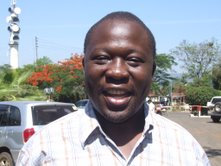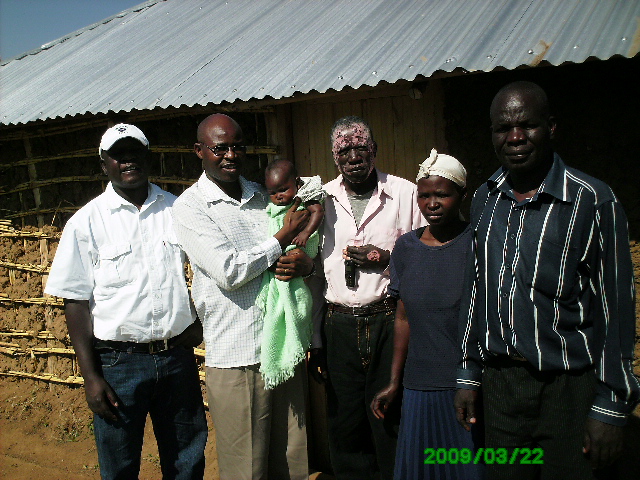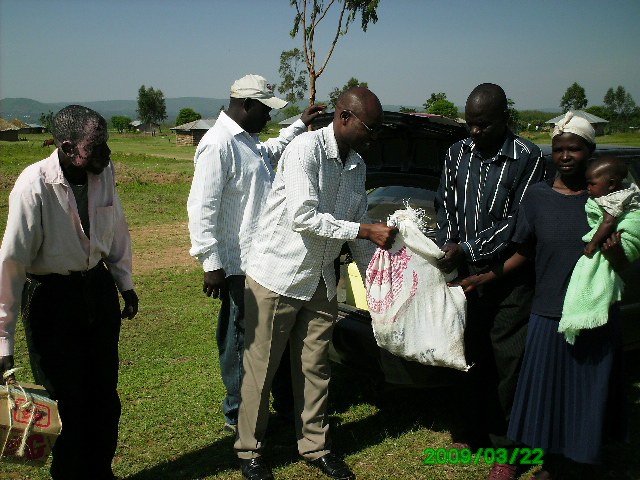The questions of our abundant human and natural resources are no longer in doubt. What is in doubt is How to harness these potentials for the greatness of our people, and the development of the country and the continent at large. I have mentioned the larger African continent because, the development or under development of our country will have a spill over effect on the rest of the continent. Tanzania is huge with massive potentials. There are more the Tanzanian people can do to harness these resources without necessarily depending on the government. The civil society groups have got more work to do in this aspect. Also there is need to disseminate proper information, so that people can become aware of what they can start doing both individually and as group.
Tanzania has massive solar energy, courtesy of the abundant sun. Just recently, Time international magazine of September 28th 2009, reported that Europe aims to cover a considerable proportion of their electricity needs over the next decades using solar power from Africa. This is not another colonization or neo-colonization, its simply that we do not value what we have or that we do not know how to explore our God given resources for own good.
Tanzania is also blessed with abundant strong winds. Strong winds can be used to generate energy. India, Germany, United Kingdom etc are already using wind turbines to generate electricity. Tanga , Lindi including other coastal regions in Tanzania will be well suited for wind turbine plants. This is because of presence of strong winds emanating from the ocean. Having observed this, let the Tanzanian private sector go into researches and partnership to explore these untapped resources. Am sure a lot of energy can be generated from these sources.
Power is very crucial to the development of any country. That was why many Tanzanians became disappointed, when the National Assembly revealed the amount of money wasted on power without any mega watt added to the national grid. Solar and wind energy can be a better alternative source of energy. More so, its equally environmentally friendly since the world is going green. There is need for wider private sector lead researches into this area. There are more to gain from these sources of energy. There is no point folding our hands while the Europeans come over to use the African solar to supplement their energy needs. Solar and wind energy can produce power cheaper. The question of distribution like laying electric cables, electric poles etc will not be an issue. Thus homes, individual, groups and communities too remote to be reached by power cables, can generate on their own without depending on the national grid. In the United Kingdom, there over 100,000 installed solar micro generation. This figure is set to rise, especially with the increased campaign to save the planet. With this method in place, we might begin to have steady power for both home and industrial needs.
Lets not forget our pleasant whether conditions (tropical climate), which I consider to be one of the best in the world. Our whether supports the cultivation of most cash crops and farm products. Tanzania can become the food basket of Africa if we want. You will begin to appreciate our whether more, when you live in countries with adverse whether conditions. Most western and other foreign countries (United Kingdom, Canada, America, Germany, China, etc) can record between -1 to -20 degrees. Our whether is also quite suitable for tourism, as most western tourist(s) prefer warm climates.
There is also need for us to start recycling our waste products. This is an area that requires more researches and more investments. The private sector/business leaders should look more into this process of converting waste to wealth. Tanzania has more waste to be converted to wealth. In 2008, the city of Leicester in United Kingdom recycled 33% of its waste.
The level of recycling waste in Tanzania is low. There is more wealth to be created by our waste. A lot of employment opportunities can be created through this venture. The following waste can be recycled, paper, cardboard, newspapers, catalogues, magazines, glass bottles, plastic bottles, jars, aluminum, car batteries, cans, CDs, metal, electrical equipment, fluorescent tubes, ink jet cartridges, used engine oil, video tapes, unused paints, asbestos materials, used cooking oil etc. We can export our waste products like scrape metals etc.
At present, some researchers from Hokkaido University Japan in partnership with a business firm have produced the worlds first biodiesel from used cooking oil. The product is called, Vegetable Diesel Fuel. This product (Vegetable Diesel Fuel) has been used to generate electricity in some events in Japan. We can borrow this technology and domesticate it in Tanzania. The major raw material (used cooking oil) can never be in short supply in Tanzania. Since it can generate electricity, it will be highly needed to substitute for the normal diesel and fuel, which is currently being used to generate power.
From the above paragraphs, Tanzanians can begin to discover or add to what they know already that we have far more resources to exploit. There is no point to wait for all these resources to continue wasting. What we need are domestic investors to explore these areas. We also need further feasibility studies, researches and dissemination of information to empower people towards recycling abundant waste products in Tanzania. There are many individuals, families, friends, groups, churches, NGOs etc that could carry out researches on the above or fund people to do same. Interestingly the cost(s) of doing feasibility studies and researches on recycling our waste might be cheaper than we think.
Added to the above are our abundant human resources. Our population is one of our biggest assets as a nation. Our big population has created large market, which is indirectly the investors paradise. Zain Tanzania (mobile phone Communication Company) is a good example of a company that has benefited from the large Tanzanian market. Our market/our large size accounts for why there are so many Chinese, Lebanese, and Indians in our country. They are doing business as well benefiting from our large population. Our economic planners, business leaders, entrepreneurs etc should explore our size to its fullest. If not for economic problems, energy instabilities (regular power failures), insecurity etc, am sure many more foreign investors would have come to Tanzania.
We also need to add skills acquisition to our academic pursuits in order to boost our human resources. We need to copy the Japanese who do not have any natural resources beneath the earth but up in their brain. We can earn more money with our skills overseas if we choose to work abroad. An example is a plumber, electrician, and a motor mechanic earns more than 30 pounds per hour in most cities in United Kingdom. May God bless Tanzania.
Yona Fares Maro
I.T. Specialist and Digital Security Consultant



